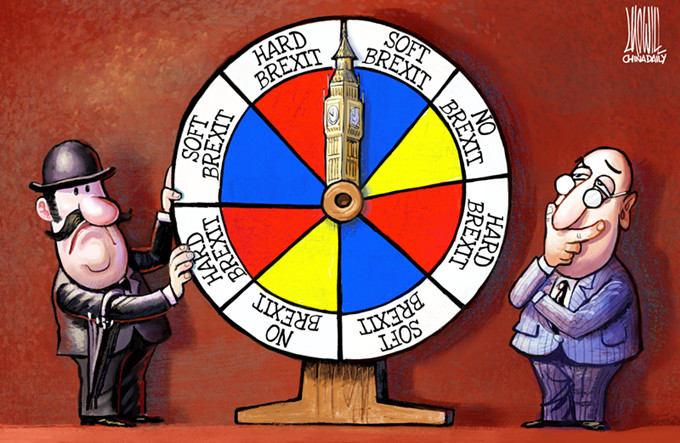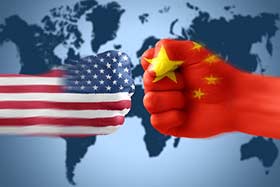Draft gives anti-graft fight a shot in the arm
The draft of a national supervision law was submitted to the National People's Congress, the country's top legislature, for review at its session late last month. The legislation is aimed at building a unified, authoritative and efficient supervision system.
A pilot program for the national institutional supervision system has been implemented in Beijing, and Shanxi and Zhejiang provinces, and supervisory commissions at three levels - provincial, municipal and county - are already in place to monitor all public office holders.
As an institutional innovation mechanism in the nationwide anti-corruption campaign, the pilot program makes clear these commissions' supervisory role and their obligation to combat corruption. The new commissions are expected to be independent of the government, the court and the procuratorate, and the job of its staff members, appointed and supervised by the top legislature and its local branches, will include that of the supervisory officials affiliated to the government, the procuratorate and administrative audit organs which scrutinize those assuming and leaving office.
These arrangements, in part, fulfill the need to employ Party discipline and national laws to combat corruption. Besides, the independent supervisory commissions under the leadership of the Communist Party of China and the NPC are in line with the solemn promise to put power under the supervision of the people.
The establishment of the new supervision system is intended to consolidate the Party's absolute leadership in the anti-corruption campaign, which is not just about fulfilling its supervisory and disciplinary duties but also about ensuring the enforcement of Party discipline and laws is corruption-free.
The slew of corruption cases unearthed in recent years shows that an efficient, and unified supervision of public power could have curbed corruption. Previously, local "tigers" (senior corrupt officials) managed to find supervisory loopholes and pull some strings to evade local supervision and inspection. Not any more. The wrongdoers will face streamlined punishments from detention to "residential surveillance", instead of just having to explain themselves.
The national supervision system will also inject fresh impetus into the anti-corruption drive. The Party disciplines and relevant laws will be enforced in a more synergistic manner to add legal teeth to the NPC supervision. And governments at all levels have been urged to fulfill their obligations to supervise and be supervised, while the judicial and procuratorate organs will be subjected to checks and balances.
Ideally, the new supervision system could help improve national governance, by purging latent abuse of power from it, as the supervisory commissions are expected to have the right to investigate, audit, warn and suggest when it comes to preventing corruption. In particular, the introduction of preventive supervision could dissuade would-be corrupt officials from taking the wrong steps.
On the one hand, the system calls for procuratorates' intervention to hold defendants criminally accountable. On the other, it allows the defendants to appeal the non-criminal penalties handed down by the supervisory commissions to the court. Also, the commissions will have access to evidence of corruption that the customs, police, or auditing authorities have.
Under the new arrangements, the supervisory commissions will work closely with their counterparts under the Central Commission for Discipline Inspection, the Party's top anti-corruption body, and their cooperation will add more flexibility and efficiency to the mission of eliminating corruption.
The author is director of the China Anti-Corruption Judicial Research Center.

























